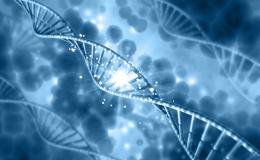Do You Need an Annual Lung Cancer Scan? (The Answer May Surprise You)
April 6, 2021
The U.S. Preventive Services Task Force (USPSTF) recently revised its lung cancer screening guidelines, making twice as many people eligible for screening based on their new recommendations.

In the U.S. and worldwide, lung cancer is the number one cause of cancer death, and the current 5-year survival rate for lung cancer is only 20.5%. The guideline revisions were made to help physicians detect the disease in patients at an early enough stage to improve patient outcomes and potentially cure the cancer.
The new recommendations were recently published in JAMA1 and reduce the starting age of lung cancer screening from 55 years of age to 50 years of age and lower the smoking history threshold from 30 pack-years (smoking one pack per day for 30 years or smoking two packs per day for 15 years, etc.) down to 20 pack-years. Patients must still smoke or have quit smoking within the past 15 years to be recommended for screening. The new guidelines make more women and African-Americans eligible for yearly screenings, as these populations smoke less heavily than the white male demographic used to determine earlier guidelines. This is particularly important because the incidence of lung cancer at lower tobacco exposures is higher in women and African-Americans than white men.
In all, 14.5 million people will fit the new annual screening guidelines, increasing the total number of eligible people by 6.4 million. It is estimated that annual screenings will decrease the risk of dying from lung cancer in the qualifying population between 20 to 25 percent.2 Each screening consists of a low-dose CT scan that exposes patients to a relatively low amount of radiation. Screening X-rays were abandoned years ago as the test didn’t detect lung cancers early enough to effectively treat the disease. Over the course of their analysis, the USPSTF determined that the risk of non-detection in the eligible population far outweighs the risk of developing cancer due to the yearly radiation exposure that occurs from annual screenings.
Most lung cancers can be attributed to risk factors, such as smoking. In some individuals, cancer is instead caused by mutations or “misspellings” in genes that can be passed from an affected parent to their child. These mutations typically affect the function or expression of genes that tightly regulate cell growth and division. If an affected person accumulates sufficient additional mutations in a cell to lose control of cell division, the cell becomes cancerous and divides uncontrollably. Cells are more likely to turn cancerous and at a younger age in someone with a hereditary cancer mutation because virtually every cell in an affected person’s body has an adverse mutation in a hereditary cancer gene from birth.
Screening tests that facilitate early detection can improve patient outcomes with not only lung, but other types of cancer as well. The American Cancer Society has created a website to help people understand which cancer screenings are performed at certain ages,3 and your physician will help you determine which screening tests are right for you. In addition, comprehensive hereditary cancer screenings, such as the ExpedioTM Hereditary Cancer Screening offered by Kailos Genetics, analyze patient DNA for mutations in genes associated with hereditary cancer syndromes. Diagnosing a patient with a hereditary cancer syndrome allows both the patient and their physician to customize screenings and preventive therapies to mitigate the specific cancer risks conferred by a particular mutation and establish if other family members may be at risk. Click here to learn more about ExpedioTM or contact us with any questions you may have regarding genetic screenings.




